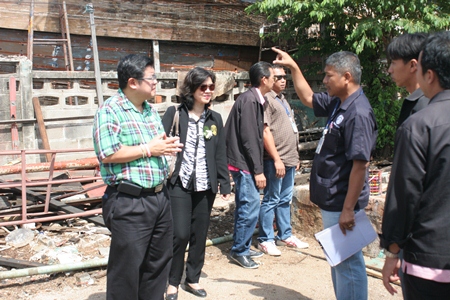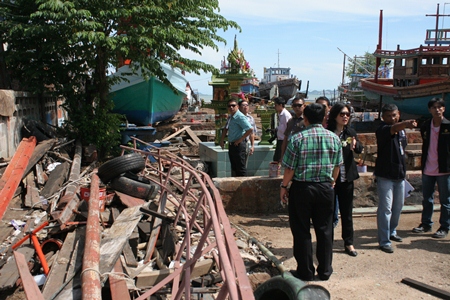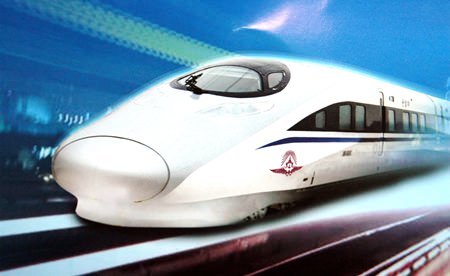Long before Suvarnabhumi International Airport even opened in 2006, Thai officials have been talking about linking it with Pattaya by high-speed train. They’re still talking.
The State Railway of Thailand hosted yet another discussion on the proposed rail link Sept. 13 noting that the budget for the project is still on hold, but if it ever passes, the train will have pronounced benefits for Pattaya, Chonburi and Rayong.
 Project manager Sayan Imsom-Sombun says the proposed high-speed railroad links to Pattaya would be immensely beneficial to the nation’s economy.
Project manager Sayan Imsom-Sombun says the proposed high-speed railroad links to Pattaya would be immensely beneficial to the nation’s economy.
Mapped out to run 206 kilometers, the government figures it needs an astronomical 2 trillion baht to get trains running. Needless to say, it won’t happen all at once: The government budget for the entire kingdom in 2013 was 2.4 trillion baht.
Nonetheless, SRT executives were at the Ambassador City Hotel in Jomtien Beach promoting the benefits of a high-speed passenger and rail link for Thailand after it joins the ASEAN Economic Community in 2015.
SRT construction engineer Julathep Jittasombut noted three other high-speed lines with 2,200 kilometers of track are also on the wish list for other areas of the country.
The official purpose of the meeting, however, was to discuss Phase II of the eastern rail project – SRT executives had talked out ideas for Phase I long ago – which runs from Suvarnabhumi to Chachoengsao, but not through the city. This stretch covers 32 kilometers and, if trains reached their 250 kph potential, would take 14 minutes.
The hearing was to take feedback from residents and businesses to gauge estimated losses and environmental impact from construction.
“If the project does proceed, this will be able to accommodate the AEC with the eastern-regional route connecting to Cambodia and Vietnam, which will be immensely beneficial to the nation’s economy,” said project manager Sayan Imsom-Sombun.
Of course, no one at the meeting could actually estimate when, or if, the budget would actually be passed.
The train project, now under consideration in Parliament as part of a massive infrastructure-spending bill, would bankrupt the country, opponents claimed. Politicians from the opposition Democratic Party said the high-speed system would take 223 years to break even.







